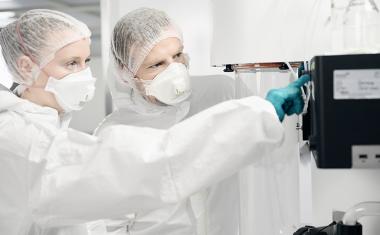Flavor Maker Givaudan Rides Latin America Consumer Boom
Givaudan, the world's biggest fragrance and flavor maker, said growing Latin American appetite for the snacks and beverages it flavors will drive more growth this year after pushing 2012 results above forecasts.
Latin America was the group's fastest growing region in 2012, with sales up 13% in local-currency terms, driven by Argentina, Brazil and Mexico, Givaudan said.
"We expect (sales) trends to continue in the same way seen last year," Chief Executive Gilles Andrier said in an interview. "The engine of emerging markets is quite strong for us."
"It is not only China and India, but also other markets like Mexico, Brazil, the Middle East, eastern Europe, Turkey and southeast Asia," Andrier said. "We grow five times faster in these markets than in mature markets."
Emerging markets accounted for 44% of Givaudan's sales of 4.26 billion Swiss francs ($4.69 billion) in 2012 and are set to make up 50% by 2015 as ever more consumers afford packaged foods, drinks and personal care products.
Demand for the group's fine fragrances that go into Dior and Prada perfumes also rebounded in the fourth quarter as retailers in Europe and emerging markets restocked, the group said.
Sales grew 6.6% in local currencies, with Asia Pacific up 4.4%, North America up 4.1% and Europe, Africa and the Middle East up 3.6%.
An improved operating performance, lower financial expenses and a lower income tax rate helped net profit rise more than expected to 411 million Swiss francs ($452 million) from 252 million a year earlier, Givaudan said.
Dividend promise
Kepler Capital Markets analyst Bettina Edmondston said Givaudan deserved a premium in the sector due to its market-leading position and attractive dividend yield.
The group, which bought fragrance and flavor maker Quest in 2007, achieved a target of pushing its leverage ratio - net debt divided by net debt plus equity - below 25% and consequently raised its dividend to 36 francs, up 64% from 2011 and higher than the 26.1 francs expected by analysts.
The group is returning 65% of a 2012 free cash flow of 512 million francs to shareholders, fulfilling a promise, and vowed to keep a payout ratio of over 60%.
"That means we still have 40% for bolt-on acquisitions," Andrier said, adding that he didn't rule out a larger purchase if it created value and sales synergies.
Givaudan, which has been struggling to restore profitability after stocking up on raw materials at the peak of the market in 2011, improved its earnings before interest, tax, depreciation and amortisation (EBITDA) to 20.4% of sales, up from 19.4% in the previous year, despite additional pension costs and expenses for a new factory in Hungary.
Costs for raw materials, such as citrus oils and crude oil-related products, are expected to rise by between 1 and 3% to 1.5-1.6 billion francs in 2013, Andrier said.
"We mitigate that through price increases so that should not have a substantial impact on our profitability," he said.
Givaudan also confirmed a mid-term goal to outgrow its peers with organic sales growth of up to 5.5% per year against 2-3% for the market.
IFF will release full-year results on Thursday, while Symrise is due to report on March 12.












